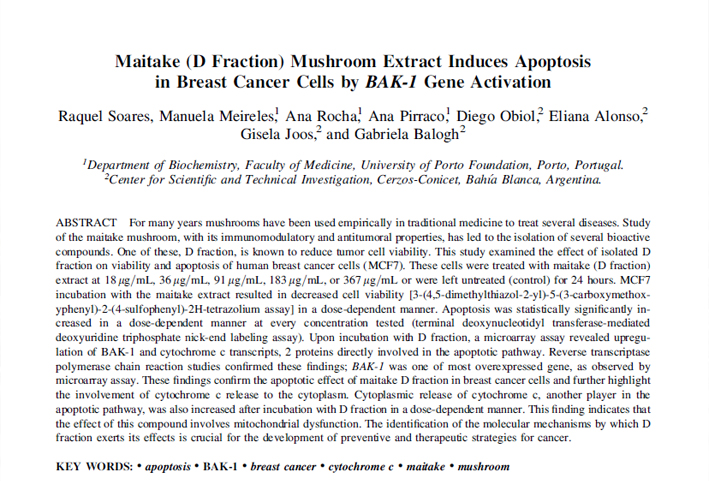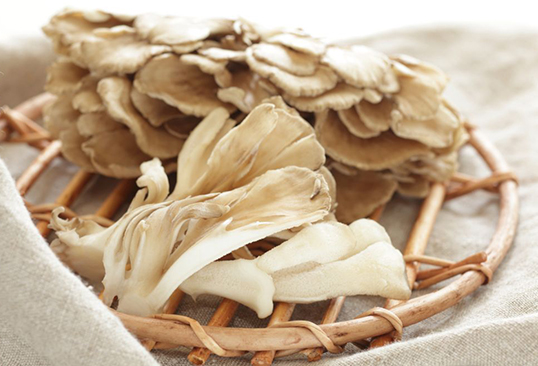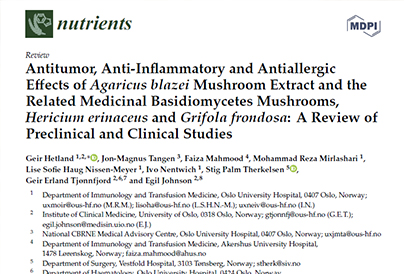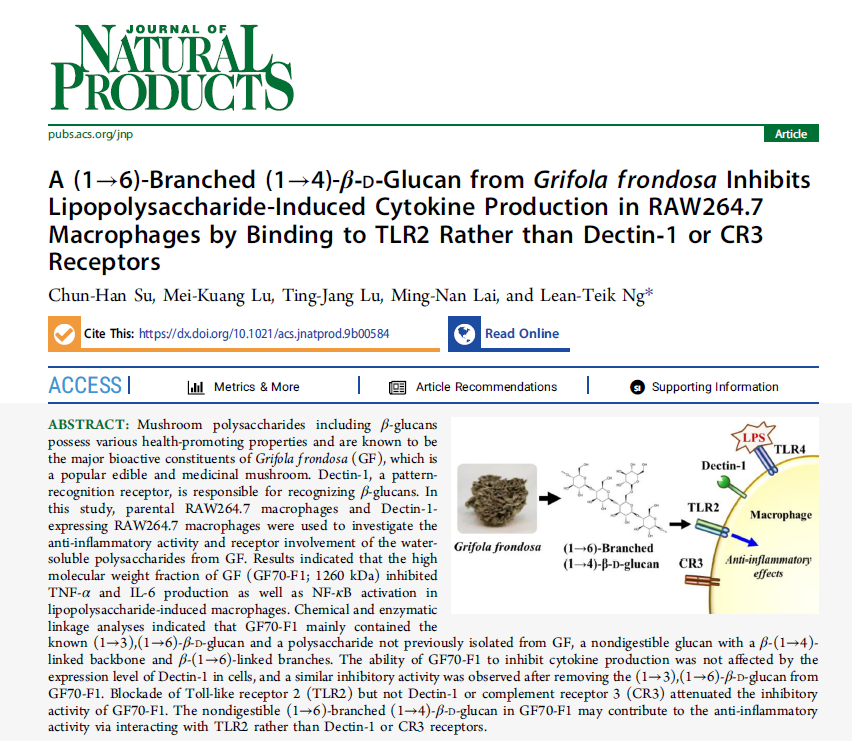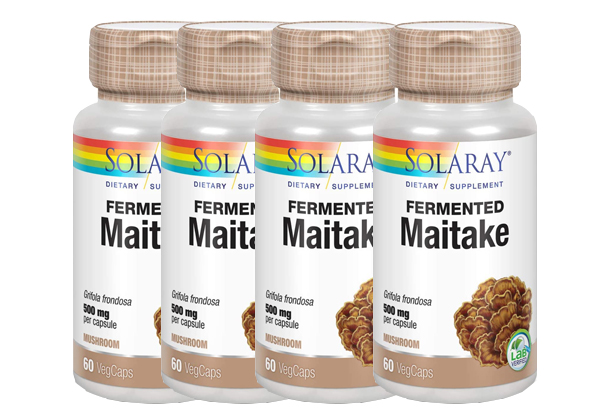In our body, more than half of the cells are not human cells, but symbiotic microorganisms. Among them, the intestinal tract becomes the most important gathering place for microorganisms. Trillions of microbial communities dominated by bacteria have shaped our health here, and the imbalance of microbial communities has been proved to be closely related to a variety of diseases - from intestinal diseases to metabolic diseases such as diabetes and obesity, and even nervous system diseases. The key link between microorganisms and many diseases is the brain gut axis.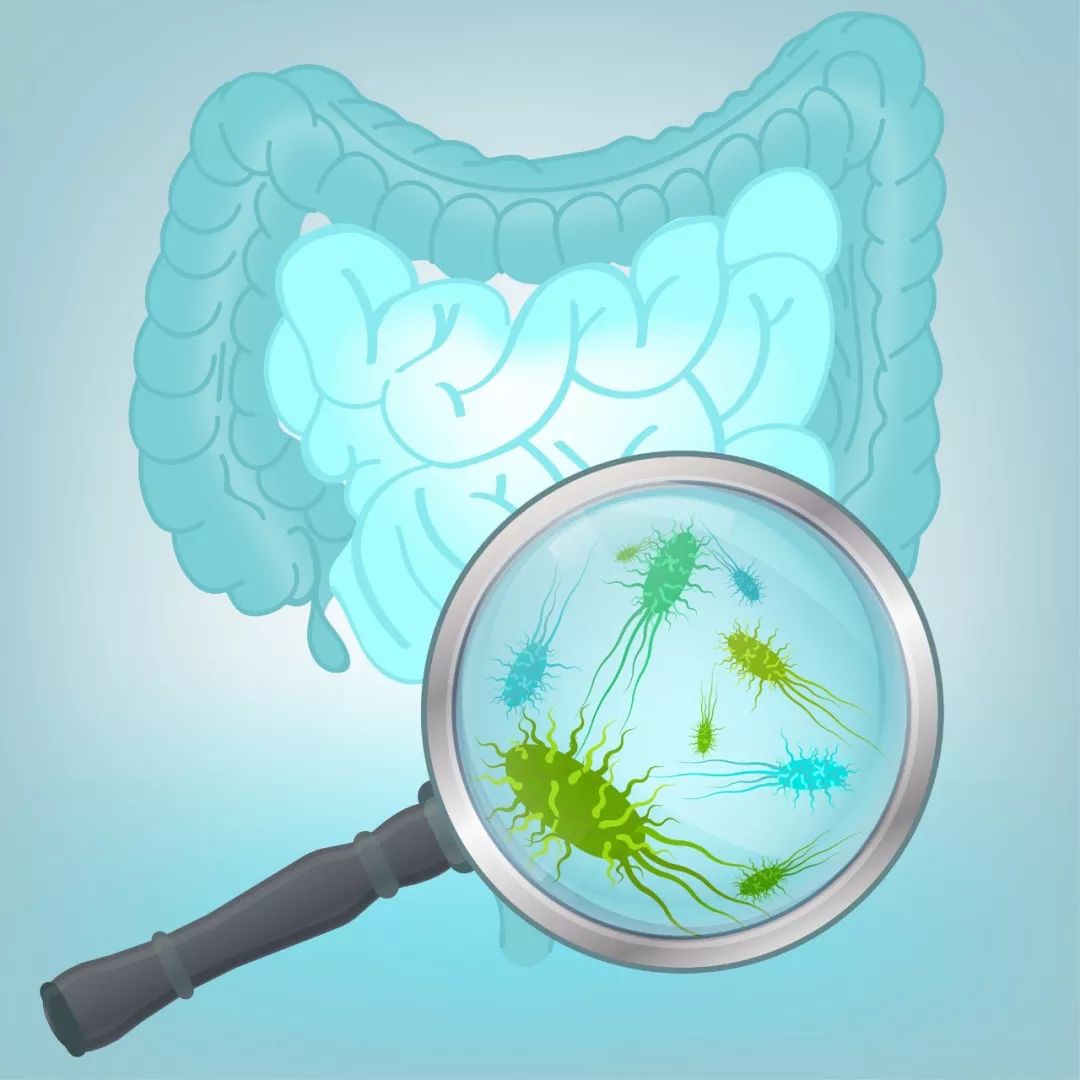
Image source: 123rf
More and more evidence shows that the host and intestinal microorganisms are interdependent, and the brain gut axis connecting the central nervous system and the gastrointestinal tract plays an important role in it. The compounds released by the microbial community regulate the host's immune response, metabolism, brain function and other physiological functions through the brain gut axis with the blood circulation. However, it is still unknown whether the brain neurons can directly sense the components of bacteria and whether bacteria can regulate physiological processes by regulating neurons.
In the latest issue of science, scientists from the Pasteur Institute in France and other institutions have revealed the mysterious connection between the brain and intestinal bacteria. They found in the mouse model that hypothalamic neurons can directly detect the changes of intestinal bacterial activity and regulate physiological processes such as appetite and body temperature according to their changes. This discovery proves that there is direct communication between intestinal microorganisms and brain neurons, which may provide new treatment ideas for metabolic disorders such as diabetes and obesity.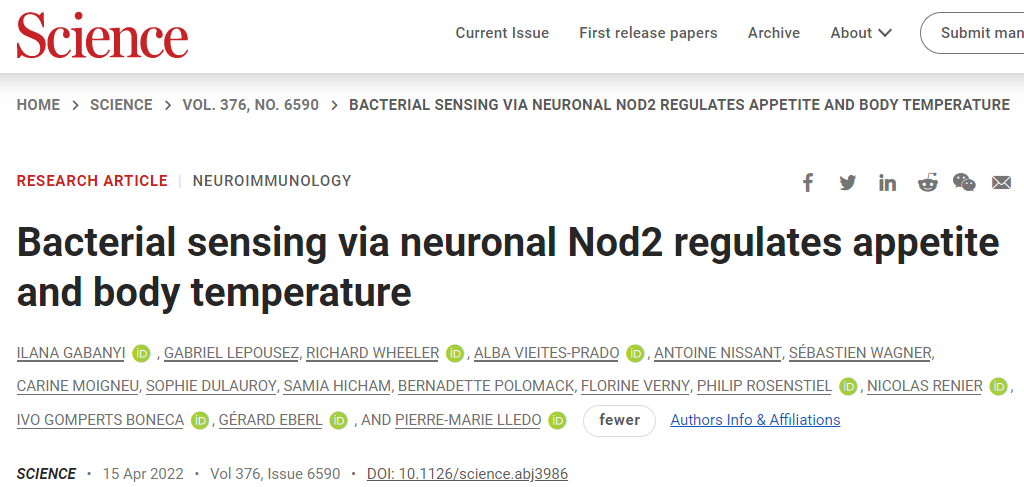
The research team focused on the nucleotide oligomerization domain 2 (NOD2) receptor. This pattern recognition receptor exists in most immune cells and can help the immune system recognize the fragment of bacterial cell wall, cell wall peptide. Previous studies have found that mutations in the gene encoding NOD2 receptor are related to metabolic diseases such as Crohn's disease, as well as nervous system diseases and emotional disorders. However, these studies are insufficient to prove that there is a direct relationship between neuronal activity in the brain and bacterial activity in the gut.
In the latest paper, the research team used brain imaging technology to observe that neurons in different regions of the mouse brain (especially the hypothalamus) express NOD2 receptors. Further experiments showed that when contacting with the cell wall peptide of intestinal bacteria, the electrical activity of neurons was inhibited.
And when NOD2 is inhibited in the hypothalamus γ- When GABA neurons are specifically knocked out, these neurons are no longer inhibited by cell wall peptides. At this time, the brain loses its control over food intake and body temperature. As a result, mice (especially older females) gained weight and were more likely to develop type 2 diabetes.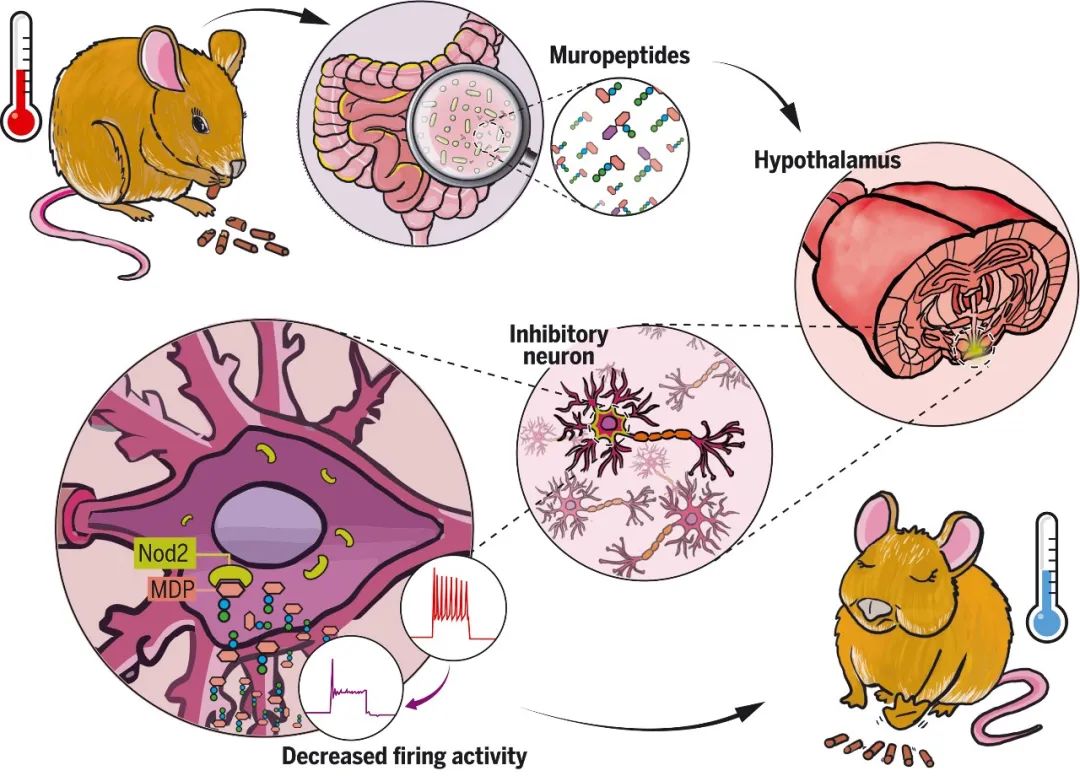
▲ schematic diagram of mouse experiment of this study (picture source: reference [1])
Thus, this study proved that neurons can directly sense bacterial cell wall peptides. Previously, it was thought that this process requires the participation of immune cells. Dr. Pierre Marie LLEDO of Pasteur Institute, the corresponding author of the paper, said: "as the brain center, the hypothalamus is responsible for regulating key processes such as body temperature, fertility, hunger and thirst, and we found that bacterial cell wall peptides can directly act on the hypothalamus, which is a surprising discovery."
This study shows that neurons can detect the activities of bacteria, such as reproduction and death, so as to directly judge the impact of food intake on intestinal balance. Excessive intake of certain foods may stimulate the disproportionate growth of certain bacteria or pathogens, thus endangering the balance of the intestinal microbiome.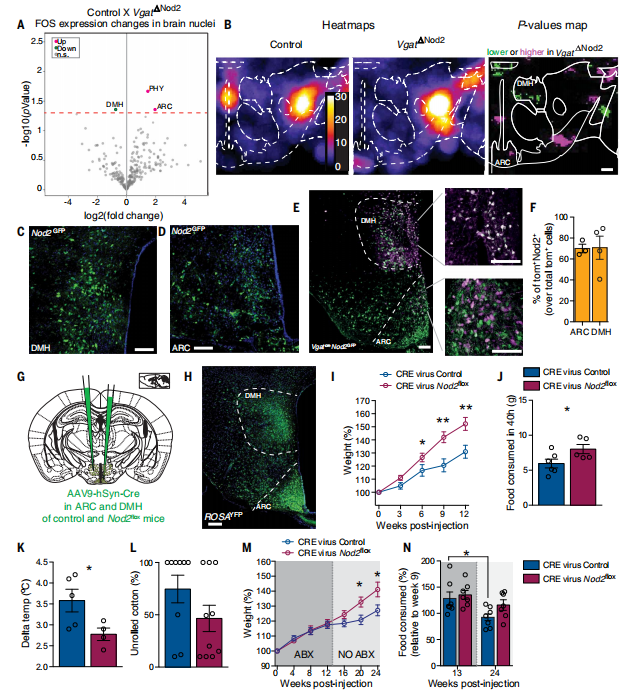
▲ hypothalamic NOD2 is involved in the regulation of body weight and body temperature (picture source: reference [1])
The effect of cell wall peptide on hypothalamic neurons and metabolism has also attracted people's attention to its potential impact on other brain functions, and is expected to help us understand the relationship between specific brain diseases and NOD2 gene mutations. This discovery also points out the direction for other interdisciplinary research in neuroscience, immunology and microbiology. Based on this breakthrough, we can expect that more brain diseases and metabolic disorders may usher in new therapies.
Reference material:
[1] Ilana Gabanyi et al., Bacterial sensing via neuronal Nod2 regulates appetite and body temperature. Science (2022) DOI: 10.1126/science. abj3986
[2] Decoding a direct dialog between the gut microbiota and the brain. Retrieved Apr. 15, 2022 from https://medicalxpress.com/news/2022-04-decoding-dialog-gut-microbiota-brain.html
Source: Academic longitude and latitude
https://mp.weixin.qq.com/s/fK8JNQWg8NDe3eRY6IvWyQ

The latest discovery of Science: the brain can talk directly with intestinal bacteria!
Abstract:Inourbody,morethanhalfofthecellsarenothumancells,butsymbioticmicroorganisms.Amongthem,theintestinaltractbecomesthemostimportantgatheringplaceformicroorganisms.Trillionsofmicrobialcommunitiesdominatedb
1、All the information in this website is available on the Internet, and all of them contain the original text or the source of quotation. You can check the original text;
2、The information on this website is only for learning and popular science, not for any other purpose. Please read it rationally;
3、If the information contained in this website violates your rights, please contact us, we will delete it at the first time, and thank you for your prompt;;
Course of literature review methods:
1、Open the information of the website, where there is the reference source of the information, and click open;
2、Read or download the literature online, most of which are charged. Please download according to your needs and abilities;
3、Baidu search sci-hub, then you can get unexpected download method;
4、Literature Translation: you can easily read the literature by using the "Zhiyun" literature tool;
5、Online English Literature: you can use Baidu translation and other translation tools, or use "copytranslator" to read online more conveniently;
Famous medical literature databases at home and abroad:
Open The Tool

-
CCTV local column team went to Qingyuan to shoot
http://images.chinamaitake.com/2020-12/2020122516193135501.jpg
Reports2021-01-20
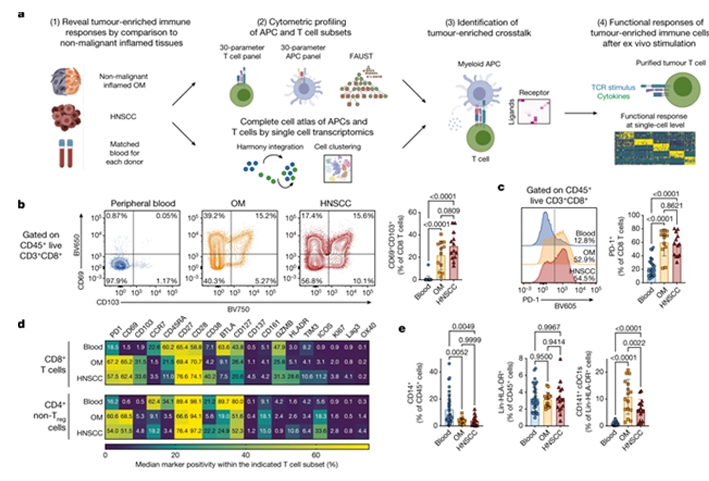
-
Nature: too cunning! Solid tumors cheat a T cell against immune attack
Inanewstudy,Dr.MartinPryc,animmunologistatFredHutchinsonCancerCenter,andhisresearchteampointedoutthatanunexpectedtrickin
iHealth2022-06-23
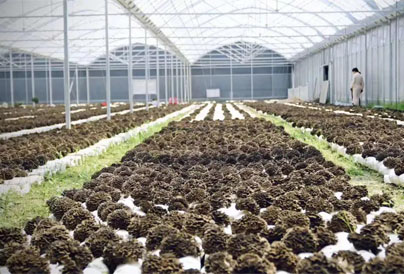
-
400 tons of Maitake luxuriant Japanese dining table
TheMaitakejustpickedfromtheshedwasdirectlytransportedtothecooperative,andanewexportwasfoundforthedestockingofMaitake.
CloseTo2021-01-04
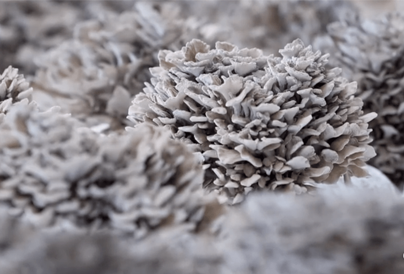
-
Maitake that carries hope, follow Qingyuan mushroom farmers on the
Maitake,duetoitshighmedicinalvalue,iscalledthePrinceofEdibleFungi.HuangtianTown,QingyuanCounty,amountainoustownwithanare
CloseTo2021-01-04
Research / D-Fraction / Experts
- Antitumor effect of Maitake polysaccharide and its influence on macrophages and natural killer cells
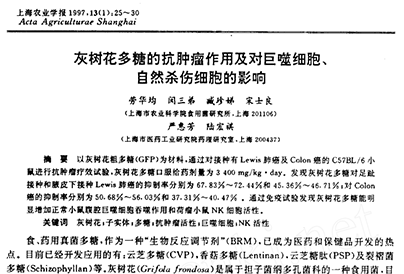
-
AntitumoreffectofMaitakepolysaccharideanditsinflue
Research2021-01-05
- Inhibitory effect of Polysaccharide from Maitake fermentation broth on S180 sarcoma in mice
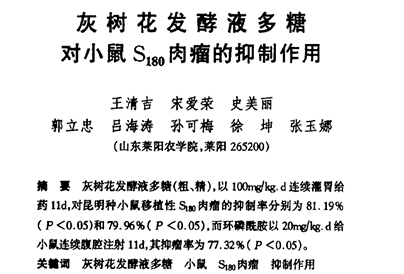
-
InhibitoryeffectofPolysaccharidefromMaitakeferment
Research2021-01-05
- Antitumor Activity and Immunological Property of Polysaccharides from the Mycelium of LiquidCultured Grifola frondosa
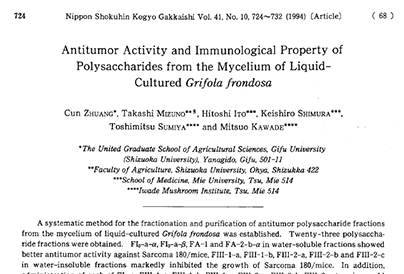
-
AntitumorActivityandImmunologicalPropertyofPolysac
Research2021-01-05
Maitake News
- 2021 National Cancer Prevention and treatment publicity week

-
TheNationalCancerPreventionandcontrolpublicityweek
Reports2021-04-15
- Healthy China 2030

-
OnMarch28,2021,theprojectHealthChina2030-standardi
Reports2021-04-01
- GB 7096-2014 national food safety standard Edible Fungi and its products

-
GB7096—2014IssuedonDecember24,2014Nationalfoodsaf
Reports2021-03-11
Appliance
Maitake Culture
- Mushroom extract: the focus of immune health new product development

-
Basedontheincreaseofconsumersawarenessofhealthandt
CloseTo2021-04-28
- Qianxi, Hebei Province: small Maitake makes a big industry
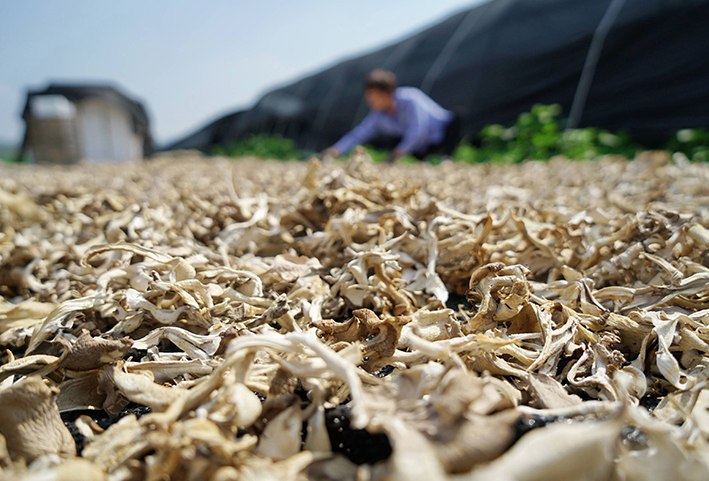
-
Inrecentyears,QianxiCountyofHebeiProvincetakesches
CloseTo2021-04-15
- Maitake in the west of Hebei Province -- a good industry for the rich people and strong county
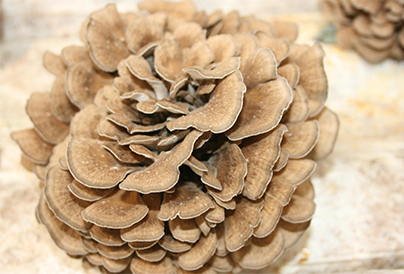
-
Maitake,alsoknownaspleuromyces,mushroom,lotusfungu
CloseTo2021-03-31

